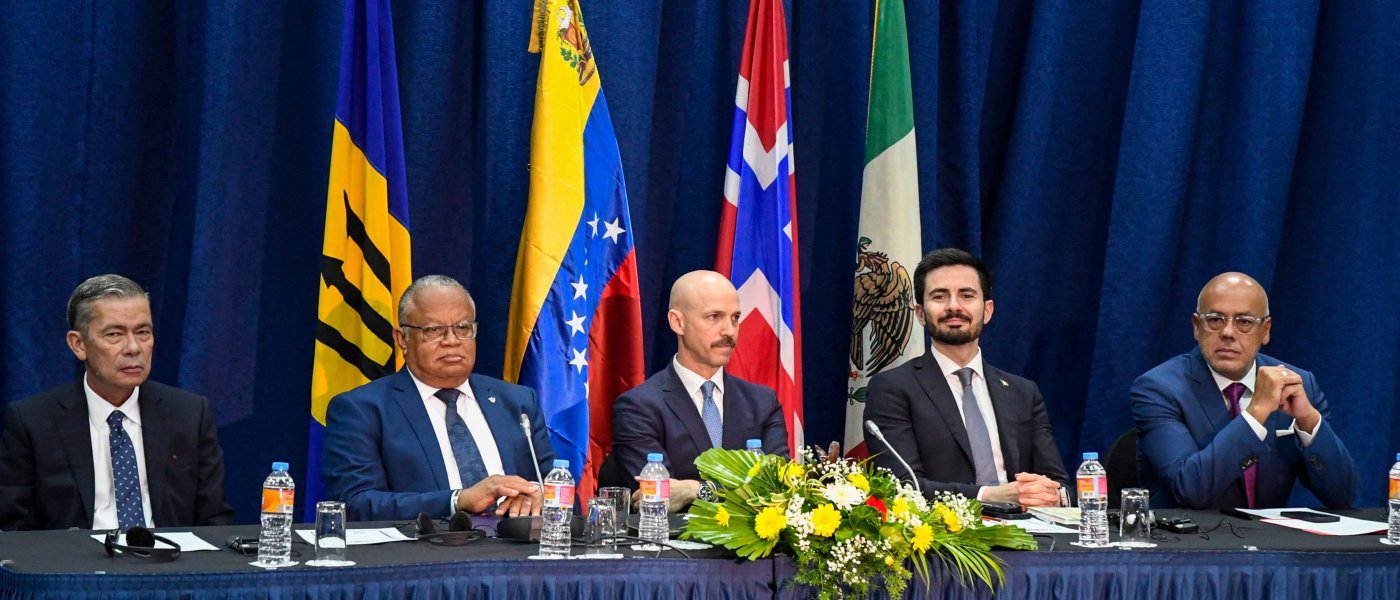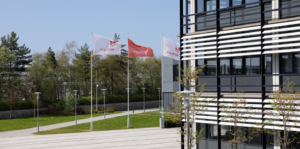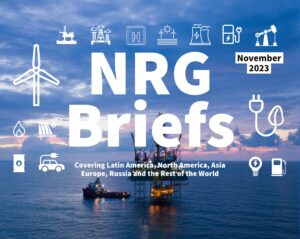
(CSIS, 29.Nov.2023) — Over the last month, the Biden administration has presided over a sea change in U.S. policy toward Venezuela. The recent lifting of sanctions on the Maduro regime is the most significant alteration of Venezuela policy in the last several years, coupled with routine deportation flights started on the same day as the sanctions relief to address a torrent of Venezuelan irregular migration. Gone is the policy of “maximum pressure” that Biden inherited from his predecessor, which had garnered bipartisan support on Capitol Hill. From its earliest days, the Biden administration signaled its discomfort with a maximum pressure campaign and its intent to unwind sanctions in exchange for concessions from the Maduro regime toward a free and fair election.
The Biden administration’s policy of sanctions easing reached its crescendo in mid-October. Utilizing its bequeathed leverage, the Biden administration engaged in over a year of covert negotiations with leading officials in the Maduro regime, hosted by the Government of Qatar. On October 17 in Barbados, the Maduro regime and Venezuela’s political opposition celebrated the signing of two partial accords, agreeing to some basic elements of a freer and fairer presidential election in 2024, such as the presence of independent media, international missions of election observers, and importantly, the right of both sides to pick their candidates according to their own internal processes. The opposition then held its internal primary election just days after signing the partial accords.
Under the Biden administration, the opposition’s prior negotiations with the Maduro regime yielded slight alterations in Washington’s sanctions architecture on Caracas. For instance, after the resumption of dialogue between the opposition and the Maduro regime in November 2022, the Biden administration issued a special license for Chevron, the last U.S. oil major in Venezuela, to resume its operations and export crude to the United States in return for the regime paying down debt owed to the company. Unlike the phased sanctions relief of the past, however, the Biden administration opted to reciprocate the Barbados agreements by “[going] big at the very beginning,” according to one senior official.
The extent of the sanctions relief surprised many analysts, representing the Maduro regime’s full return to the international oil and gas markets, gold markets, and secondary bond trading markets for a period of six months, subject to renewal. Monetarily, this will likely equate to billions in additional revenue for Maduro, which is critical for his ability to engage in clientelist politics heading into an election year, with salary increases for Chavismo’s beleaguered public sector base likely top of mind.
The Biden administration followed the announcement of sanctions relief with a statement by Secretary of State Antony Blinken laying out additional U.S. conditions and expectations. Specifically, Blinken conveyed an “understanding” that Maduro would release political prisoners—the regime holds hundreds of political prisoners as well as several U.S. citizens unjustly—and define a process for lifting the multiple candidate bans that arbitrarily and illegally block serious political opposition in Venezuela, including a ban on the winner of the opposition’s primary, María Corina Machado.
However, the absence of explicit language to this effect in the Barbados agreements—the accords refer to candidates being allowed to run who “fulfill requirements according to Venezuelan law”—lends itself to an alternative interpretation. The Biden administration was unable to secure the Maduro regime’s “understanding” on the conditions for sanctions relief, especially the nettlesome issue of candidate bans. On this interpretation, the Biden administration instead released a statement that tacked on U.S. expectations, which the regime had not agreed to during the negotiations.
The Maduro regime’s actions since inking the partial accords have offered further evidence in favor of this interpretation. While the regime did not intervene to completely shut down the opposition’s independently organized primary, it has pursued a course of action that can be construed as breaking the Barbados agreements both in spirit and in deed—mere days after signing. The regime censored, harassed, and intimidated media outlets covering the primary, while also shutting down the internet to impede the primary commission’s transmission of poll results. On election day, there were multiple reports of regime thugs intimidating voters, shots fired at polling stations, and ballot boxes stolen. After announcing the victory of María Corina Machado with a commanding 92 percent of the vote, the Maduro regime promptly launched an investigation into the primary process, labeling it a “mega fraud.” The regime-controlled Supreme Court proceeded to “suspend” the results, an annulment that lacks legal effect given that the opposition organized its primary independent of regime-controlled state institutions.
Nevertheless, the Maduro regime may attempt to force a “redo” of the primaries with an outcome more amenable to staying in power. In recent weeks, the regime has dragged top primary organizers before the attorney general. As part of its investigation, the Maduro regime has demanded the primary commission hand over information on the nearly 2.5 million people who participated. National Assembly president Jorge Rodríguez disputed these numbers by intimating Chavismo had placed agents inside opposition polling places to monitor them.
The interference in the opposition’s internal selection process not only violates the Barbados agreements in spirit and also in deed, but the environment of intimidation harkens back to one of the most harrowing moments of political revenge in Venezuela’s recent memory—the so-called Tascón List. Faced with the prospect of his removal in a recall referendum in 2004, former President Hugo Chávez’s administration made public a list of those who signed in favor, proceeding to fire them from public posts, deny them work, cut them from benefits, and declare they had committed “acts of terrorism.”
Parsing Maduro’s Calculations
The key question is why the Maduro regime so blatantly attacked the opposition’s primaries when doing so comes with a clear risk—the reimposition of harsh U.S. sanctions. After all, a windfall of cash beckons from the Biden administration’s lifting of sanctions. But the opposition’s primaries were not only about the opposition; they manifested several important truths to Maduro.
First, Maduro’s actions evince an awareness of just how unpopular he is—not only with the opposition, but within Chavismo as well. Scores of people queued in the ruling party’s traditional strongholds to vote in the opposition primary, demonstrating a deep wellspring of support for Machado. According to one recent poll, Machado maintains a broad base of support, even among those who identify with the ruling party. Confronted with this reality, “Maduro concluded that poverty is better than defeat,” in the words of a notable scholar of authoritarian regimes. Second, despite the expected gains derived from a sanctions-free economy, Maduro may be calculating that six months of relief is insufficient to buoy his poll numbers through an expected increase in social spending to Chavismo’s base. Thus, upon witnessing the hugely successful opposition primary, the value of sanctions relief to Maduro’s favorability and reelection efforts may have diminished in his calculations. Maduro risks perpetuating a vicious cycle: much of the economic incentive of U.S. sanctions relief resides in the private sector’s interpretation of his commitment to the Barbados agreements.
But the Biden administration’s early response to violations of the Barbados agreements revealed several things to Maduro, too. When asked directly about sanctions “snapback,” senior administration officials have stated that their definition of snapback does not mean a reversion to the status quo ante. Instead, the Biden administration has stated it reserves the right to reimpose select sanctions in consultation with Congress and the Treasury Department’s Office of Foreign Assets Control. The Biden administration might pursue individual sanctions or, less likely, sectoral sanctions targeted at less strategic sectors than oil. Rather than send a clear message to an adversary about the precise sanctions risks of reneging on the agreement, Maduro will read such statements as an invitation to take his chances. After all, if anything is better than a reversion to the status quo ante—with which the regime had learned to live, albeit uncomfortably—the Biden administration’s definition of “snapback” is a net improvement for Maduro. All this means the cost of Maduro’s crackdown to avoid political change just got cheaper. Maduro might be considering calling the Biden administration’s bluff, given his ability to generate migratory flows that could cause Biden headaches in the 2024 presidential election. Most immediately, he would likely prohibit further returnee flights at a moment when an estimated 50,000 Venezuelans crossed the southern border last month, the single largest nationality appearing at the border.
Further, like many U.S. adversaries, Maduro has a fine-tuned understanding of American democracy—specifically, the pressures Biden faces in his reelection bid. The price of gas at the pump is a perennial campaign issue (reaffirmed by the 2022 midterm results) and the Biden administration is eager to obtain any additional boost to energy security, having eyed Venezuela’s reserves since Russia’s invasion of Ukraine. Maduro himself has been touting Venezuela’s contribution to global energy security for years—with one principal audience in mind. Never mind that Venezuela’s oil infrastructure is so decrepit it can hardly increase flows and contribute to increased energy security, and the price of oil is largely set on the global market rather than any one country’s domestic market. Maduro appears to be daring the Biden administration to incur the costs of reimposing oil sanctions in the middle of a hotly contested U.S. presidential election.
As it stares down its self-imposed deadline, the Biden administration will likely decide that discretion is the better part of valor. After all, opting to snap back sanctions less than two months after Washington’s major alteration of the sanctions architecture would signal strategic failure for the Biden administration’s Venezuela policy. Indeed, the Biden administration’s messaging on candidate disqualifications has already evinced a likelihood that the administration will choose not to reimpose sanctions by its end of November deadline. Secretary Blinken’s statement emphasizes the need for a “timeline and process for the expedited reinstatement of all candidates,” including Machado, by the end of November—not the actual lifting of all candidate disqualifications. (This distinction with a difference has been the subject of routine misunderstanding in the media.)
This is a perfectly plausible position in a country with firm rule of law and discernible administrative processes, where candidate’s appeals of their disqualification would wind and wend their way through a determined legal course. Yet in Venezuela, the timeline and any associated process for lifting candidate bans, will be determined by Maduro and a small cabal of Chavista elites. Thus, the “timeline and process” for which the Biden administration seeks clarity are entirely up to Maduro, tantamount to a forecast of when he intends to make an executive decision on the question of candidate bans. Sketching a pathway for the decisionmaking process should not present a challenge for Maduro—a process that is unlikely to result in the lifting of candidate bans—while permitting him to delay the decision itself and continue to pocket the benefits of sanctions relief in the meantime. In other words, Maduro may be aiming to win twice by offering a sham “pathway process” all the while preventing Machado, his most formidable potential opponent, from running. Just as reimposing sanctions weeks after lifting them would represent failure for the Biden administration, so too would providing relief without a credible pathway for removing candidate bans.
Maduro is likely calculating that he can simultaneously guarantee his victory while also keeping his commitments sufficiently opaque that he can permanently lock in some sanctions relief—a necessary long-term condition for reactivating Venezuela’s economy—even if the Biden administration follows through with its version of snapback and reimposes select sanctions. Certain performative actions have assisted Maduro to this end. NGOs have visited the infamous El Helicoide detention center where political prisoners are kept, although no unjustly detained American citizen has been released since the Barbados agreements. In fact, the Maduro regime has allegedly taken a new American political prisoner since signing the deal. Representatives from the Carter Center visited this month to discuss the possibility of an electoral observation mission, although nothing firm was agreed. Meanwhile, a newly unencumbered Maduro has pursued oil deals with China, his authoritarian patron, calling into question the biggest beneficiaries of Washington’s sanctions pivot. Whereas Chevron managed to resume production of around 100,000 barrels of oil per day bound for the United States following its special license in November 2022, PetroChina, China’s second-largest oil company, will soon close a deal to import 265,000 barrels of Venezuelan oil per day.
Back to the Drawing Board
As the end of November deadline approaches, the Biden administration’s actions will also reveal much about the viability of its operative theory of change in Venezuela and what it views as the most important U.S. interests in the country. Biden officials have always maintained that the most realistic path to change is a negotiated agreement leading to a free and fair election. Given her popularity, commanding victory, and democratic mandate, however, it is doubtful many in the international community would recognize the outcome of an election in which Machado is prohibited from running. If, as expected, Maduro does not permit Machado to run, the Biden administration must weigh how much it is willing to use whatever leverage remains to fight for her disqualification or encourage “flexibility” and move on from her candidacy in hopes of an electoral surprise. Some have discussed a (dubious) opposition strategy patterned on the 2021 gubernatorial election in Barinas state, running a putative opposition candidate likely approved by Maduro and not banned from running.
Second, the Biden administration’s decision will reveal what it believes—or more likely, hopes—about the state of Venezuela’s oil industry, and whether state-owned oil company, Petróleos de Venezuela, S.A., can shore up energy security in the most important of contexts: Biden’s 2024 reelection campaign. Despite Maduro’s Siren Song on energy security, there is strong reason to revisit the faulty assumption that a sanctions-free Venezuela could produce anything more than 1 million barrels of oil per day. Guyana’s oil production will soon eclipse that of Venezuela’s. Beyond the obvious need to increase U.S. domestic production, Venezuela’s democratic neighbor looks like a safer bet to bring oil prices down over the long run.
November 30 represents a massive credibility test for the Biden administration’s Venezuela policy. This occurs in a context where the administration faces a litany of other credibility tests globally—Ukraine, Taiwan, the Israel-Gaza crisis, and now, Venezuela. The Maduro regime’s recent kidnapping of another American citizen makes this an even tougher test of the administration’s resolve.
The Biden administration gambled big, knowing the Maduro regime’s extensive history of negotiating in bad faith. So far, that gamble has not paid off with any reciprocity from the regime. By allowing the opposition’s primary to proceed, the process manifested some hard truths to Maduro about the electoral context in 2024, prompting the recent flurry of actions to discredit the primaries and dampen voter enthusiasm. Now, the Biden administration faces a series of tough decisions about snapping back sanctions mere weeks after lifting them, and more broadly, the credibility of its operative theory of change in Venezuela.
____________________
Ryan C. Berg is director of the Americas Program and head of the Future of Venezuela Initiative at the Center for Strategic and International Studies in Washington, D.C.

